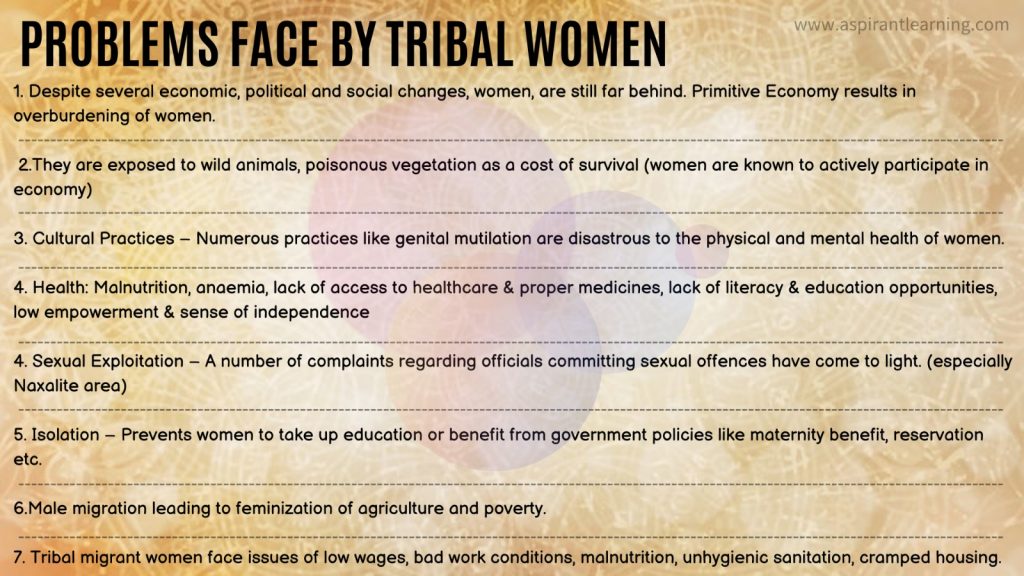News Highlights:
- DMK Member of Parliament P. Wilson has written to the Union Government to ensure that women from the Scheduled Tribe community are included in provisions of the Hindu Succession Amendment Act, 2005.
- The Act give daughters equal rights to the inheritance of their father or the Hindu Undivided Family (HUF).
Key Takeaway:
Section 2(2) of the Act excludes Scheduled Tribe community women, which results in denying their equal rights to inherit their father’s or Hindu Undivided Family (HUF) properties.
Highlighted Issues:
- Exclusion of ST women:
- The Hindu Succession Act, 1956, was amended in 2005 to grant daughters equal rights to inherit their father’s or HUF properties.
- The Member of Parliament (MoP) stated that the exclusion of women from the Scheduled Tribe in this act is discriminatory based on gender and is against Article 14 of the Constitution of India, which advocates for equality before the law.
- Historical oppression of ST women:
- MoP argues that women from Scheduled Tribes are a more disadvantaged group due to historical oppression and lack of access to education, employment, and property.
- Enlarge ambit of the Hindu Succession Act:
- The MoP has urged the Government to issue a notification that would include Scheduled Tribe women in the ambit of the Hindu Succession Act, except in cases where the customs of a particular Scheduled Tribe give women an advantageous position.
Hindu Succession Act, 1956:
- About:
- The Mitakshara school of Hindu law, codified as the Hindu Succession Act, 1956, governed succession and inheritance of property but only recognised males as legal heirs.
- Ambit of the Act:
- It applies to everyone who is not a Muslim, Christian, Parsi or Jew by religion.
- Buddhists, Sikhs, Jains and followers of Arya Samaj and Brahmo Samaj are also considered Hindus for this law.
- In a Hindu Undivided Family, several legal heirs through generations can exist jointly.
- Traditionally, only male descendants of a common ancestor and their mothers, wives and unmarried daughters are considered a joint Hindu family.
- The legal heirs hold the family property jointly.
Hindu Succession (Amendment) Act, 2005:
- About:
- The 1956 Act was amended in September 2005, and women were recognised as coparceners for property partitions from 2005.
- Section 6 of the Act was amended to make a daughter of a coparcener also a coparcener by birth “in her own right in the same manner as the son”.
- It also gave the daughter the same rights and liabilities “in the coparcenary property as she would have had if she had been a son”.
- The law applies to ancestral property and intestate succession in personal property, where succession happens as per law and not through a will.

Government measures for tribal women:
- Reservation of seats:
- Reservation of seats and relaxation in marks in admission to educational institutions, scholarships,
- Van Bandhu Kalyan Yojana:
- Van Bandhu Kalyan Yojana-with special focus on o the qualitative and sustainable employment for tribal families, Improving the quality of education and health and improving the quality of life in tribal areas.
- Single Window System:
- Single Window System for Obtaining Market Information on Minor Forest Produces,
- Residential Schools, & Tribal Research Institutes:
- Setting up of Eklavya Model Residential Schools & Tribal Research Institutes, which undertake intensive studies of tribal arts, culture and customs.
- Access to marketing:
- Access to marketing, ex: women’s part-time job is to collect minor forest products like honey, resins, herbs etc., has brought income security among many tribal
- Self-employment schemes:
- Tribal women of North East are self-employed, border e-Haat has added colour to their life.
- PESA extension:
- PESA extended to tribal areas are testimonial for the success of democratic decentralisation besides 33% reservation.
- Infrastructure:
- Infrastructure facilities like providing toilets under SBM. Etc.
- Stand Up India Mission:
- Stand Up India Mission which is dedicated to SCs/STs and Women, would fetch good opportunities.
- Decentralisation in Tribal areas:
- Democratic Decentralisation in Tribal areas would ensure their participation at the political level.
Pic Courtesy: Freepik
Content Source: The Hindu



